Barcelona was the first city we ever visited in Spain. We first visited at hitchhikers in 1975, and then went back to live there and study Spanish in 1978 for three months. We've been back innumerable times, including in 2019. We've seen the city evolve over those 45 years and have compiled this list of travel tips for Barcelona we hope you'll be able to use. Have fun.
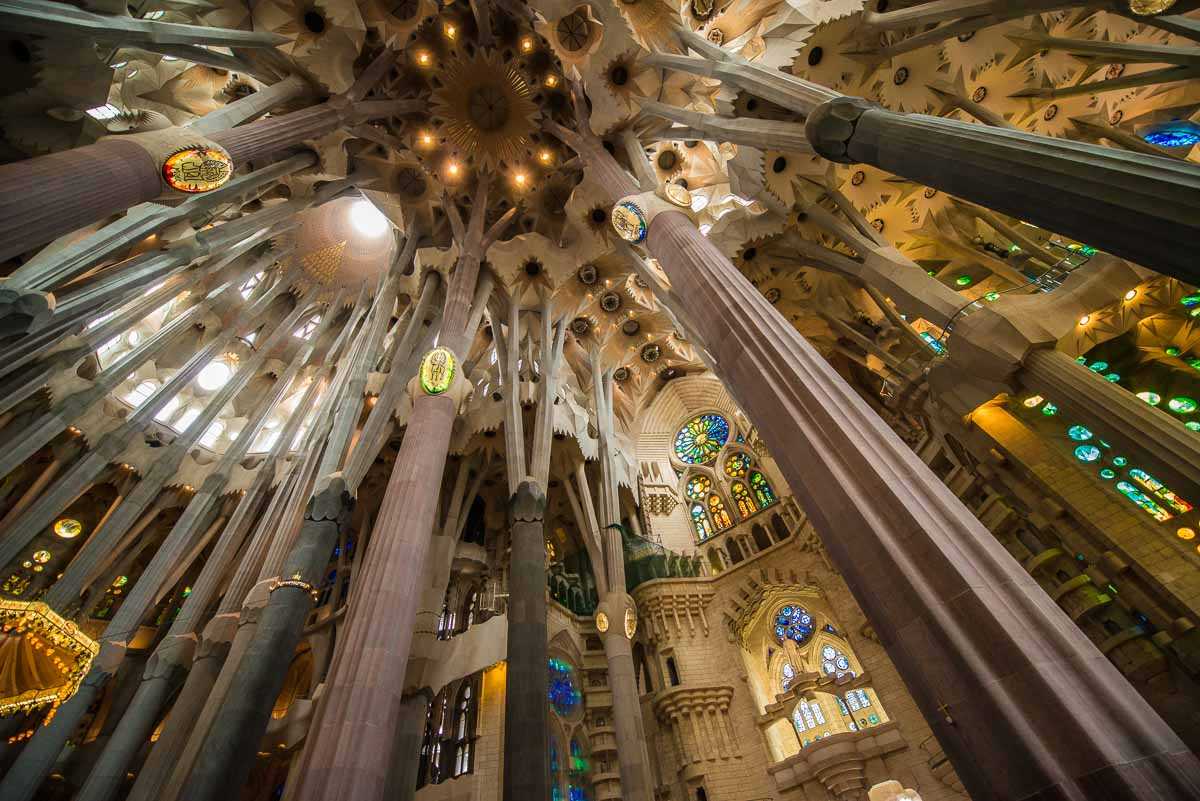
Table of Contents
The Sagrada Familia
There is no doubt that the most fantastic, in the literal sense, attraction in Barcelona is Antoní Gaudí's Sagrada Familia. Begun in 1882, it is expected to be complete, finally, in 2026, the hundredth anniversary of Gaudi's death. It has been said there is nothing like it in the entire history of art, which is a bit of an understatement. If you go to Barcelona, even if only for one day, this is the one thing you have to see. Hint: buy your timed admission ticket online, or you'll probably be waiting in line for more than an hour.
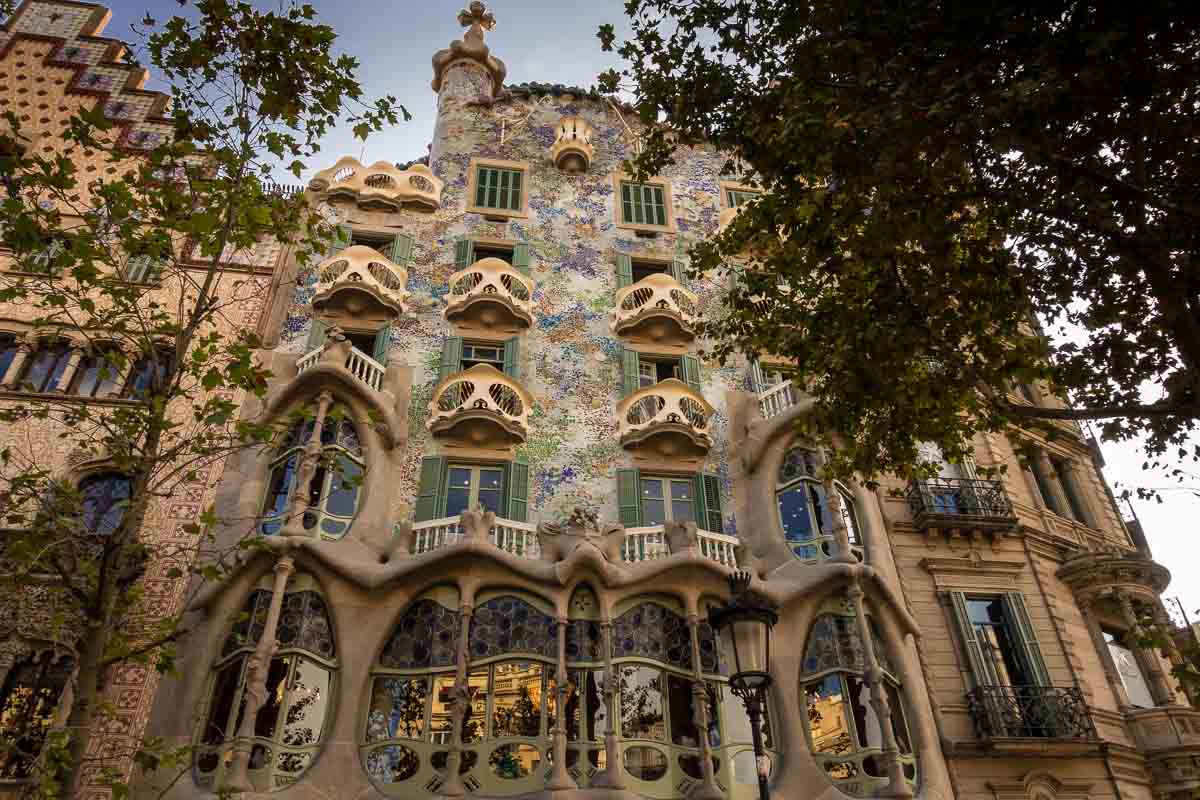
The other Gaudi sites: La Pedrera, Casa Batlló, Parc Güell
While you're on your Gaudí kick, check out some of his other work. Parc Güell is lovely, although it's no longer really a park. It's become a tourist attraction and the enjoyment of the open spaces is therefore diminished. As long as you're being a tourist, I recommend spending your time in two private residence buildings along the Passeig de Gracia about ten minutes walk from the Plaza de Catalunya.
The Casa Batlló was the renovation of an older building by Gaudí between 1904-06. The owner, a wealthy industrialist named Josep Batlló, gave Gaudí complete authority to remake the space and the result is remarkable.
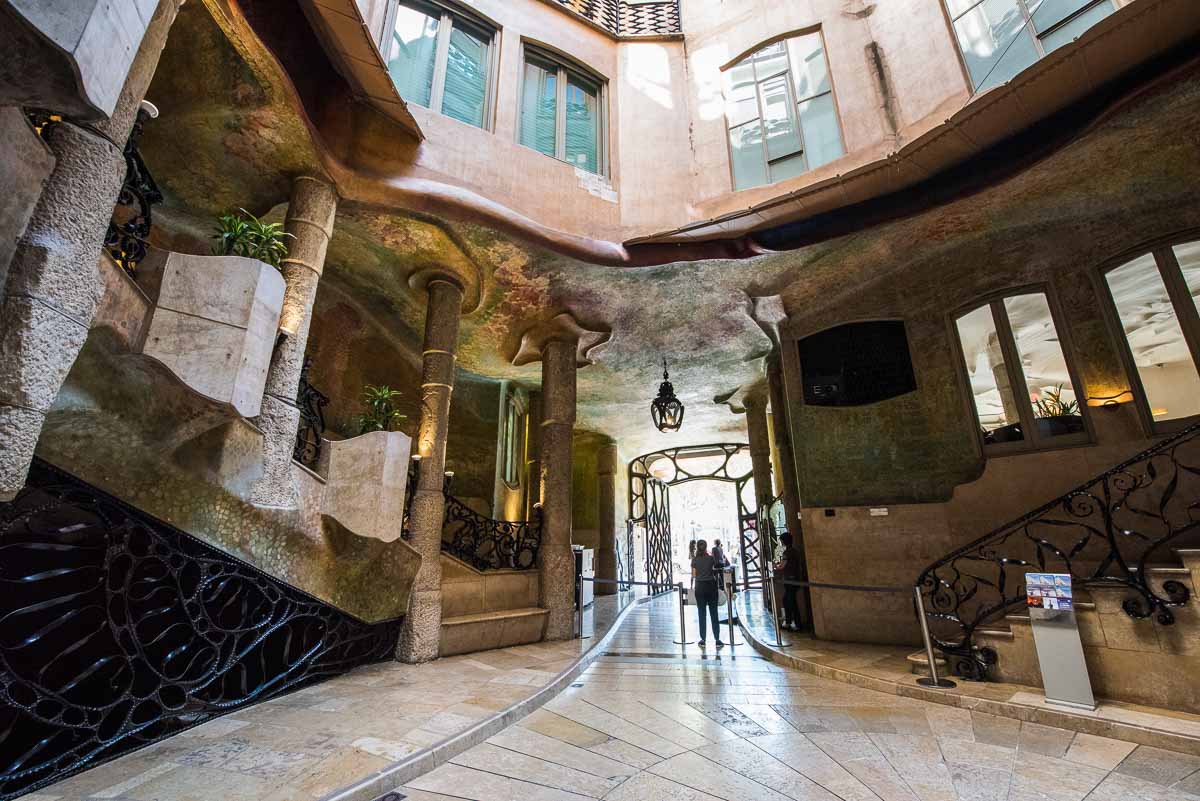
La Pedrera, also known as the Casa Mila, is a few blocks away from Casa Batlló. It is a multiple family dwelling, most of which is now turned into a Gaudí museum, although there are still families who live in the building.
You can also buy tickets for timed entry into both La Pedrera and Casa Batlló online.
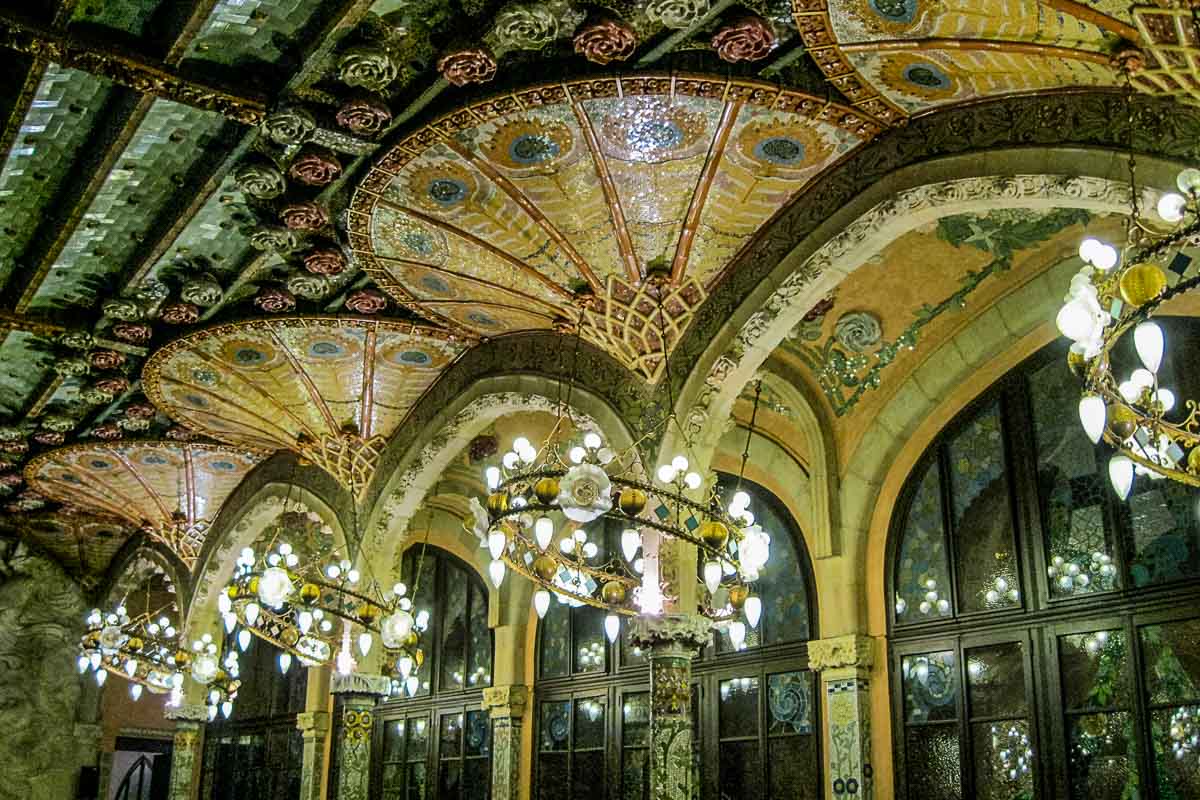
Palau de la Musica and the Hospital de Sant Pau
The other great Barcelona architect of the era was Lluís Domènech i Montaner, who designed the spectacular Palau de la Musica and Hospital de Sant Pau. While it is certainly worth taking an hour or two to walk around the hospital grounds, a more pleasant experience would be to actually take in a concert at the Palau de la Musica. The Palau was built specifically to showcase the traditional Catalan vocal music tradition, but today hosts everything from Flamenco to jazz. Be sure to buy a seat on the main floor. The stage has been extended to accommodate the other musical genres, and the sight lines from the balcony cut off the front of the stage.
Tickets for tours and performances at the Palau de la Musica can be purchased online or at the box office. The senior rate (over 65) for tours is available only at the box office.
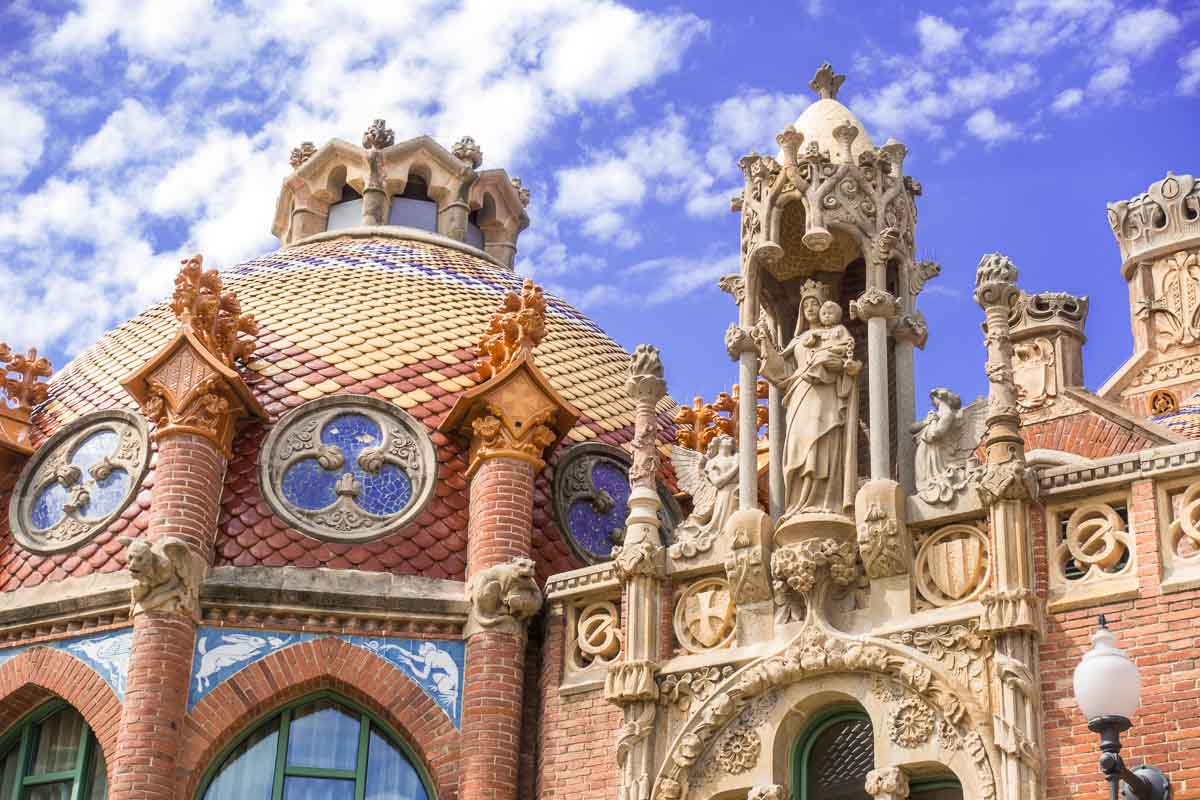
The Hospital de Sant Pau, also by Domènech, is a complex of several buildings arranged around a plaza and connected underground by a warren of tunnels. Although the hospital is no longer in use, you can enter several of the buildings and see patient wards and even operating rooms that have been restored to their approximate appearance during their time of use. But the real attraction is the exteriors, dotted with Art Nouveau sculptures, mosaics, and abstract decoration. You should allow a couple of hours for a thorough self guided tour in order to understand what you're seeing and put it in historical and artistic context. You can buy tickets in advance here.
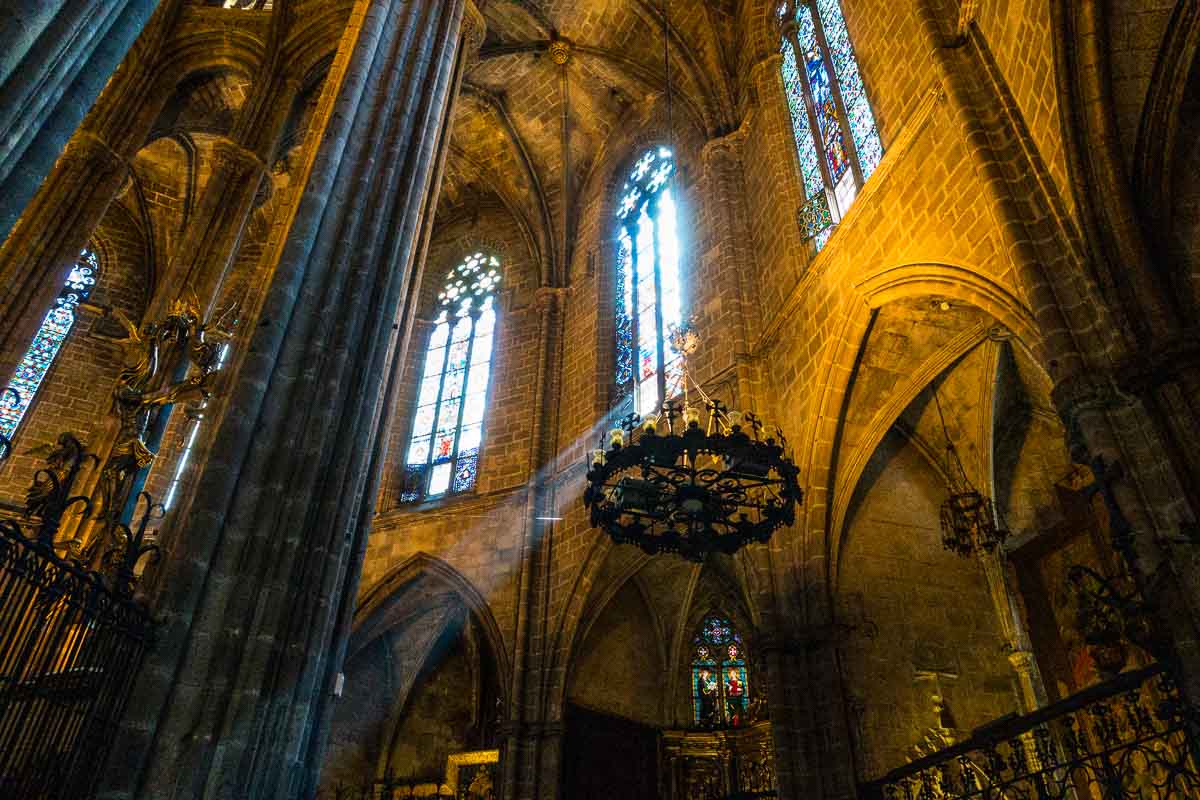
The Old Cathedral and Barri Gòtic
The Barri Gòtic or Gothic Quarter, is made up of narrow medieval streets filled with interesting bars, clubs and restaurants. The center point of the Quarter is the old Cathedral and its attendant plaza. The plaza features artisan kiosks, several restaurants, a building with a mural by Pablo Picasso, and on Sundays the Cathedral steps are the venue for a band and Barcelonans dancing the traditional Catalan dance, the Sardana.
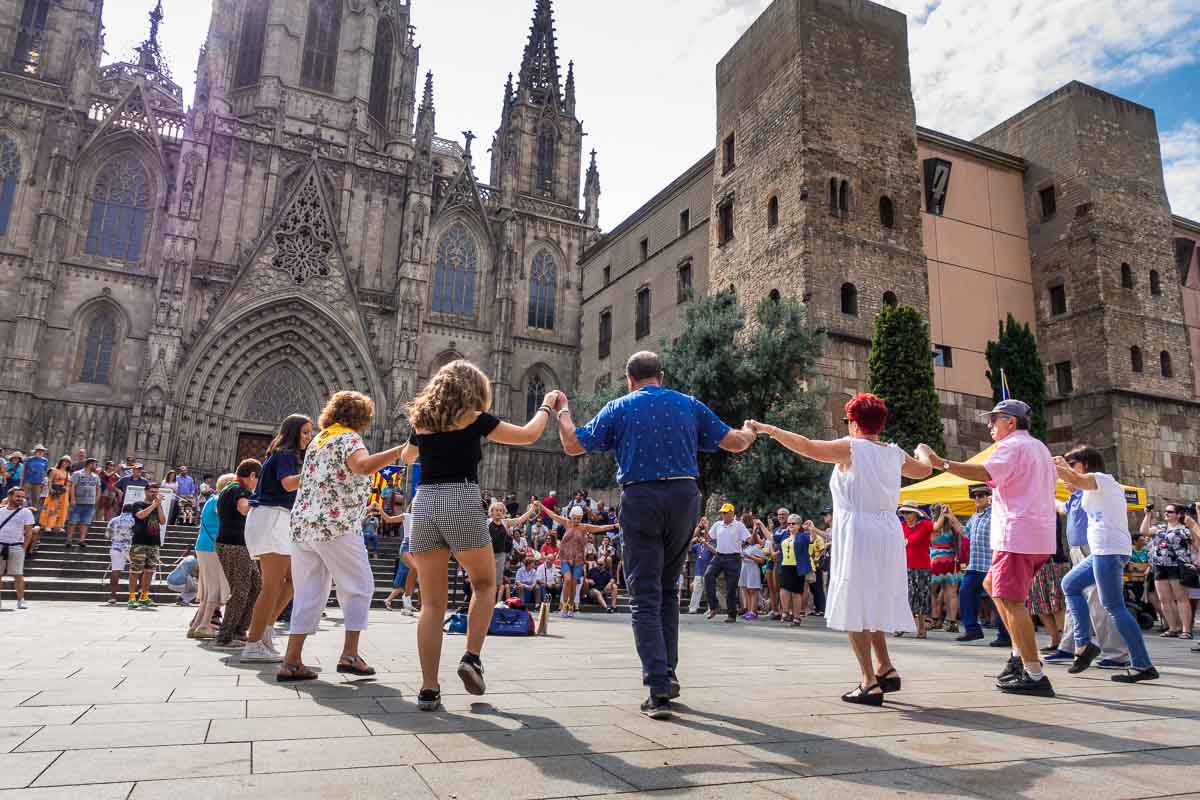
Other attractions in the Barri Gòtic include a weekend art market in the Plaça del Pi, next to the Gothic Santa Maria del Pi church. Santa Maria del Pi is also a venue of nightly concerts featuring traditional Spanish music, especially Flamenco and classical guitar, and vocal ensembles.
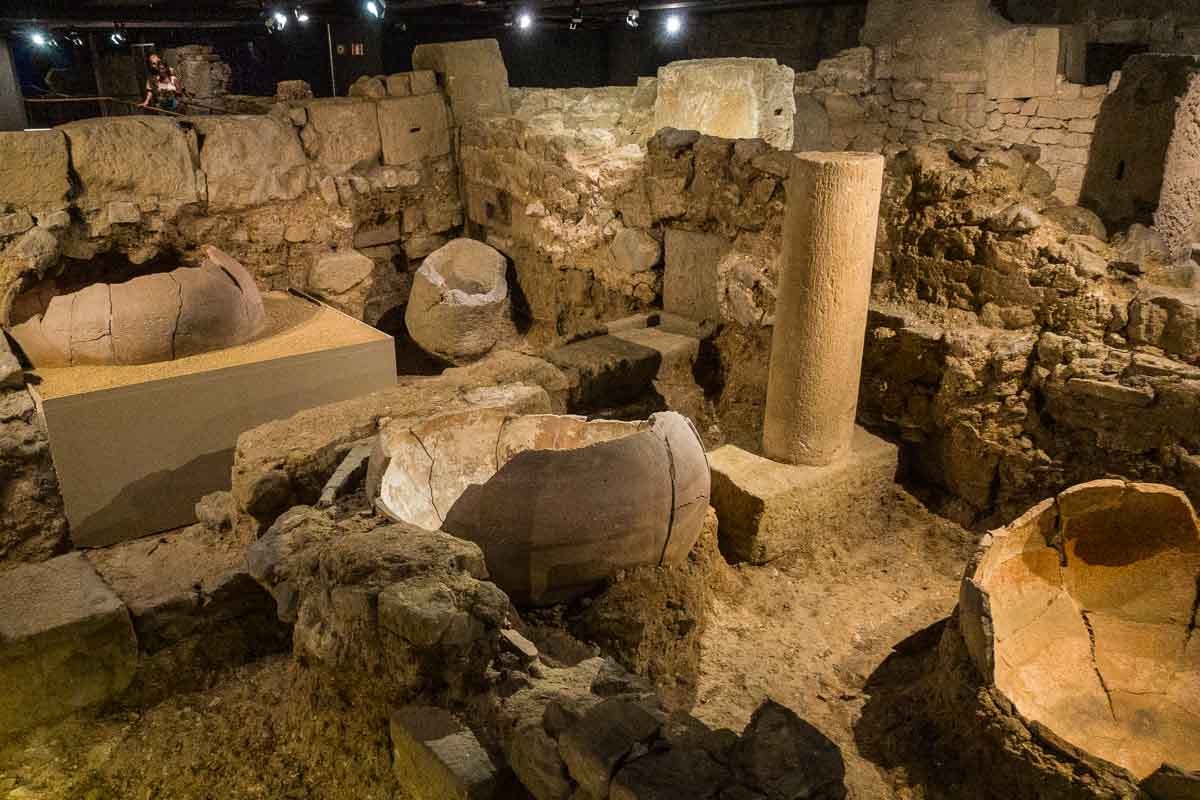
The Museum of Barcelona History
The Museu d'Història de Barcelona shows remains of the Roman city that was the first substantial settlement on the site of what is now the city of Barcelona. The Roman excavations are well documented with placards explaining what you're seeing. Also attached to the Roman ruins are exhibits tying the Roman era, through the various civilizations that have occupied the area, until today. It's not a bad idea to perhaps start your Barcelona visit at this museum to give your entire visit a historical context. Get more information and tickets here. Note: the first Sunday of every month admission is free.
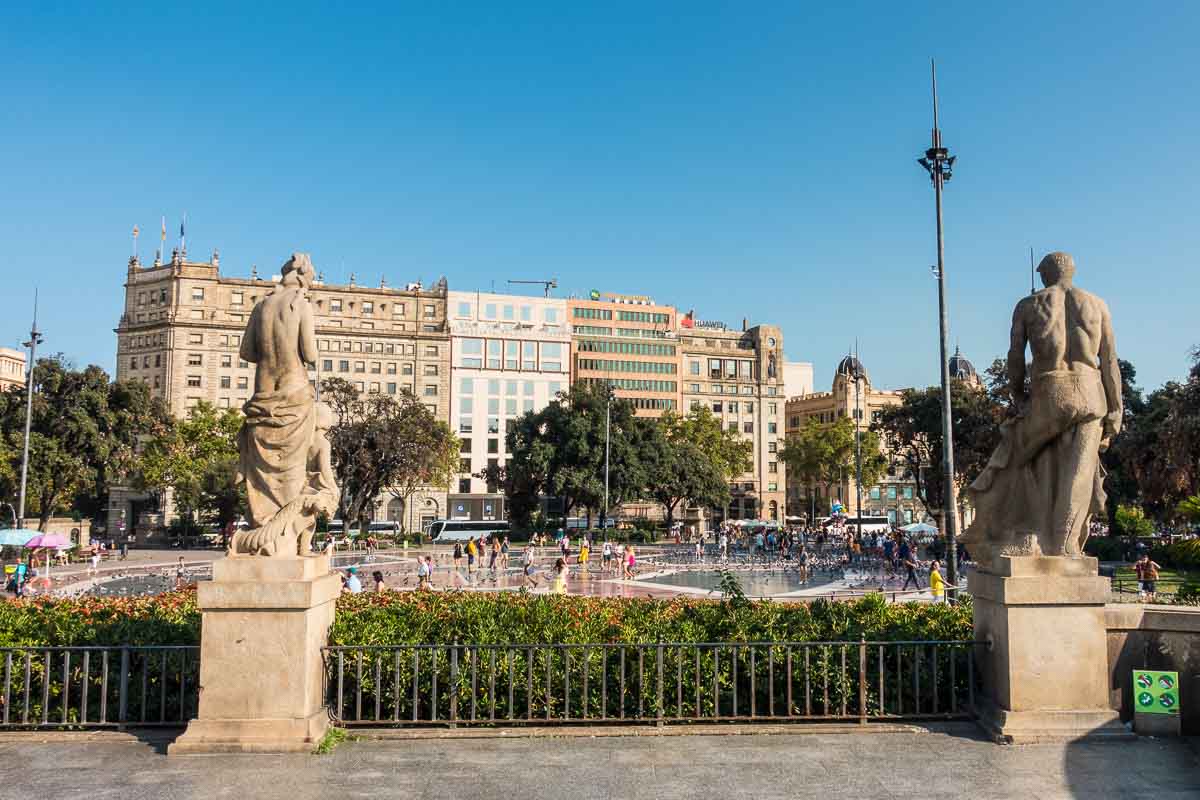
Plaça de Catalunya
The Plaça (Plaza in Spanish) de Catalunya is a large square in central Barcelona that is generally considered to be the center of the city. It's where the old city (the Barri Gòtic) and the new city (the 19th Century expansion called the Eixample) meet. It's characterized by its fountains and other monuments, including one in the corner near the Ramblas to Francesc Macià, an early Catalan separatist. There's no doubt that his spirit still dominates the location, as the Plaça is undoubtedly the focal point of any anti-Madrid/pro Catalan independence mass demonstrations.
The city's most important streets and avenues meet at Plaça Catalunya: the Passeig de Gràcia, the fashionable shopping street, ascends into the Eixample from the plaza, while Las Ramblas, the famous pedestrian street, descends the other direction to the sea. The plaza occupies 50,000 square meters (about 12 acres.) It is also known for its fountains and statues at the Eixample end of the square. The flocks of pigeons that gather in the square provide constant amusement to the small children who love to chase them around the big open area. El Corte Ingles, the comprehensive Spanish department store stretches along one entire side of the square.
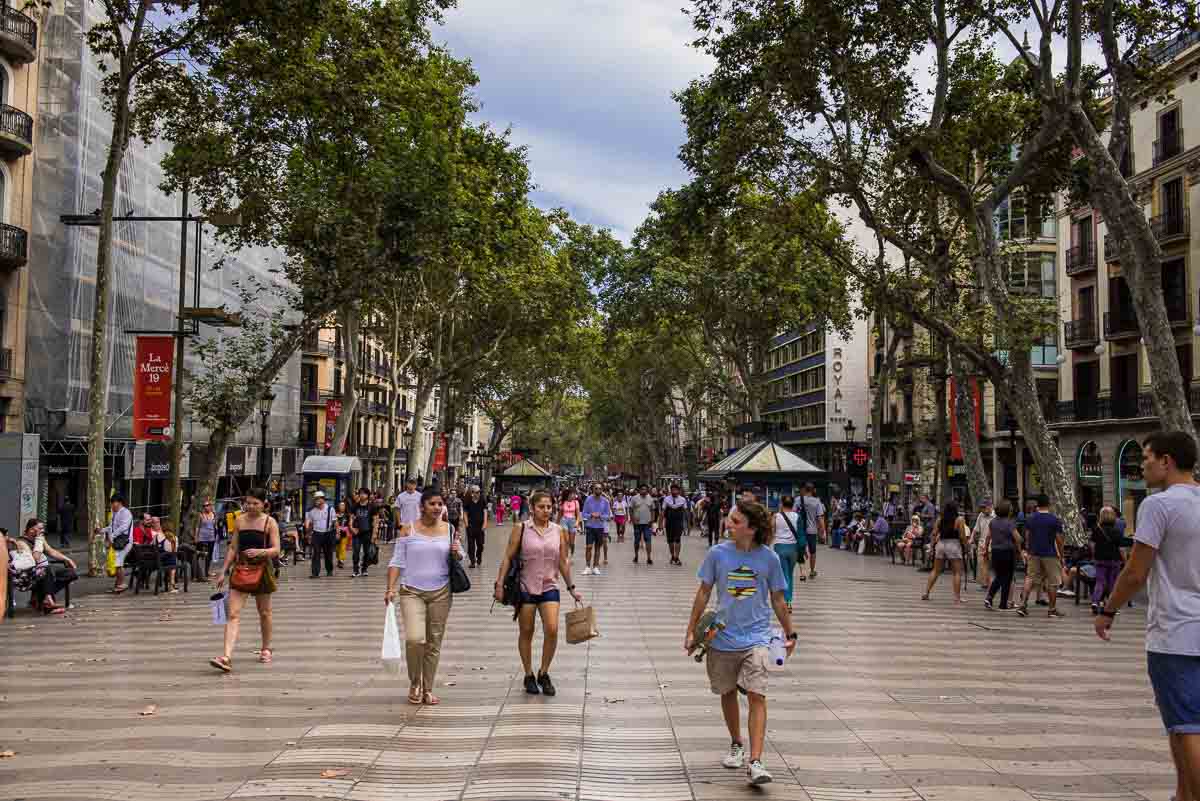
Walk the Ramblas
Kiosks selling everything from books to flowers to live birds line the busy walkway from the Plaza to the sea. Over the years, Las Ramblas has certainly become more touristy, which means many of the shops that we saw on our first visit in 1975 have morphed into crappy souvenir shops or too expensive sidewalk cafes. Nevertheless, the people watching is unsurpassed, and, if you're lucky, you'll see some truly talented street performers. But no matter how touristy, the walk from one end to the other is mandatory and will give you a flavor of the city you can't get any other way. Should you tire, just veer off to the northwest into the Barri Gòtic and find a bar there. Or, about halfway down on the east side is the famous La Boqueria market, where the neighborhood actually still does its grocery shopping, but where you can find fresh fruit, bread, cheese, and wine to fuel your further explorations. Of course, even La Boqueria has become touristy, too. But plunge in a little from the entrance and find where the locals shop, and the prices are less, and stock up.
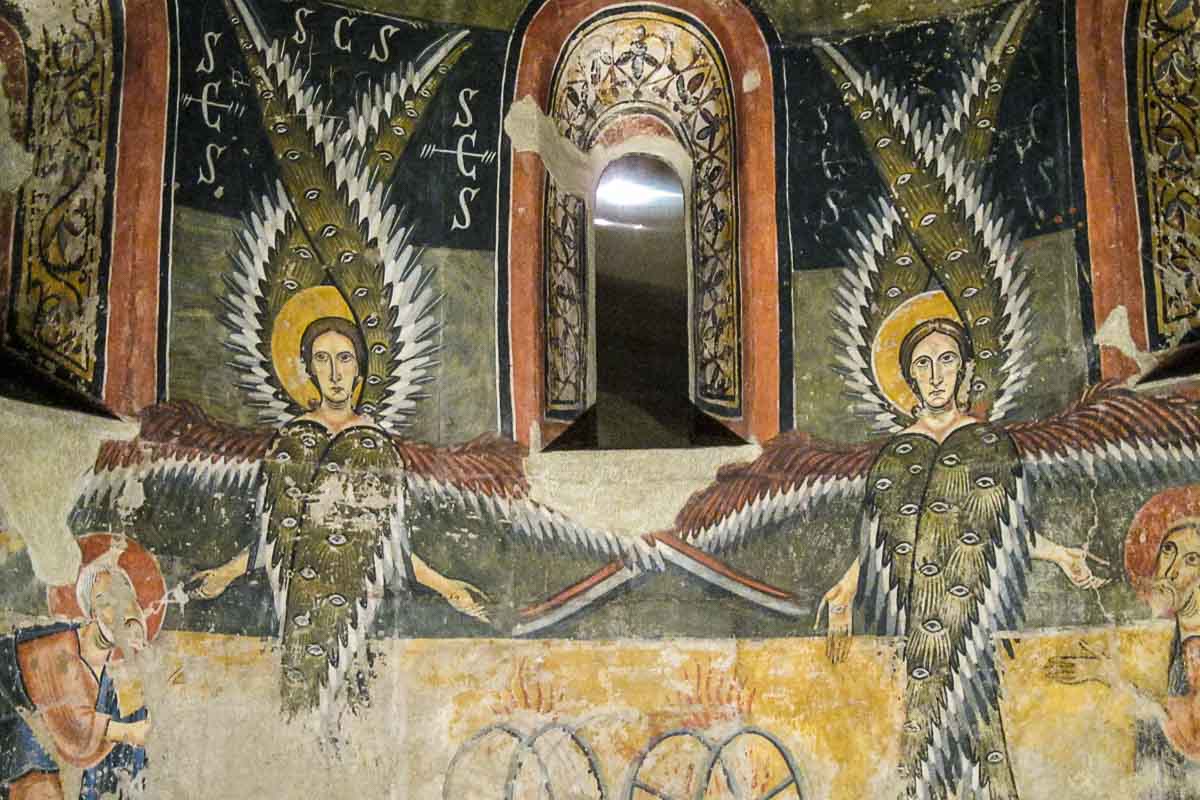
Museum of Catalan Art and The Fundació Joan Miró
I combine these two museums because they are both on Montjuic and you can walk from one to the other in about ten minutes. (Be prepared for a bit of a climb if you start with the Miró.) The Museum of Catalan Art (Museu Nacional d'Art de Catalunya) features rotating exhibits of all facets of Catalan art, but its treasure is the extensive collection of religious artifacts, sculptures, and frescoes that have been removed from crumbling 10th-13th Century Romanesque churches in the Catalan Pyrenees and brought to the museum for display and preservation. Truly remarkable stuff that astonishes by how truly bizarre it can be. From attenuated carved wooden figures of saints to colorful angels whose wings are made of eyes, you can see where Salvador Dalí must have got at least part of his inspiration.
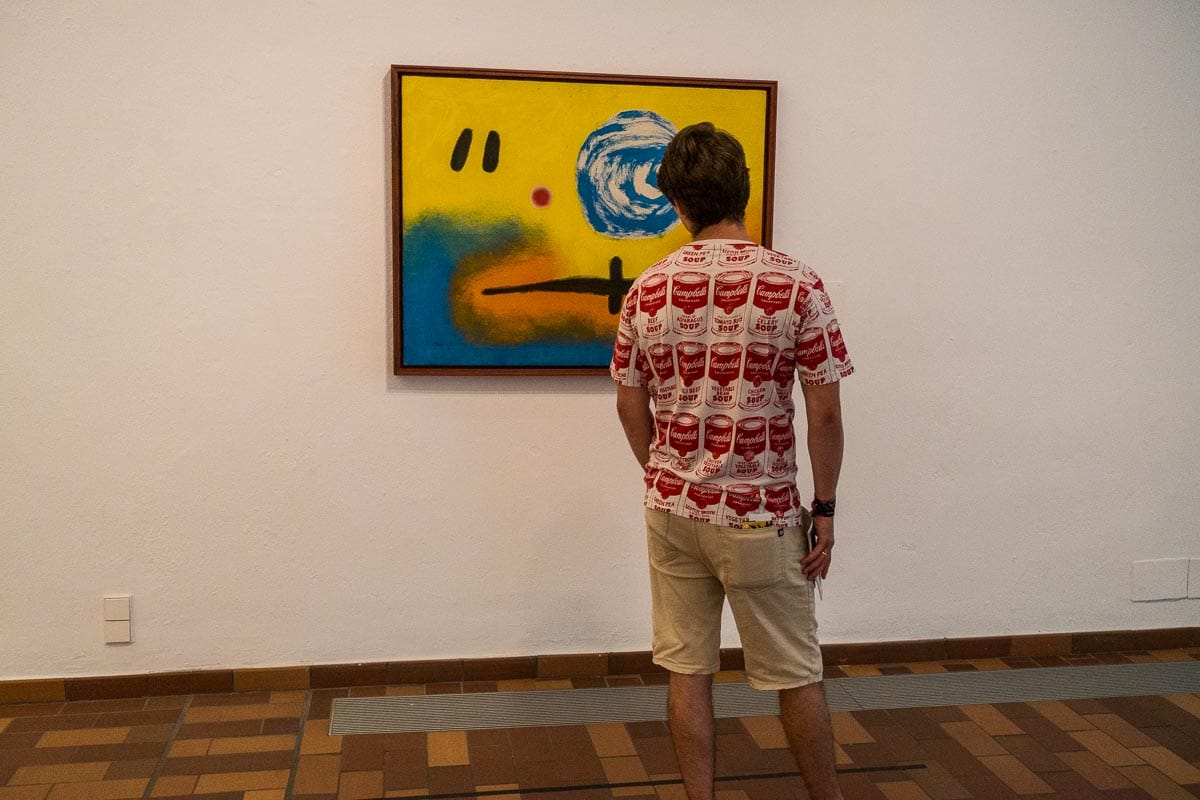
Barcelona native son Joan Miró, contemporary of Dalí and Picasso, is certainly one of the great Catalan/Spanish artists that flourished during the golden era of modernist painting in the early 20th Century. Luckily for Barcelona, Miró bequeathed his fortune and many of his best works to the city, which used his legacy to build the museum which bears his name. There are a few works in the museum of other artists, such as a Calder mobile/mercury fountain, but the primary focus is Miró, which is a good thing.
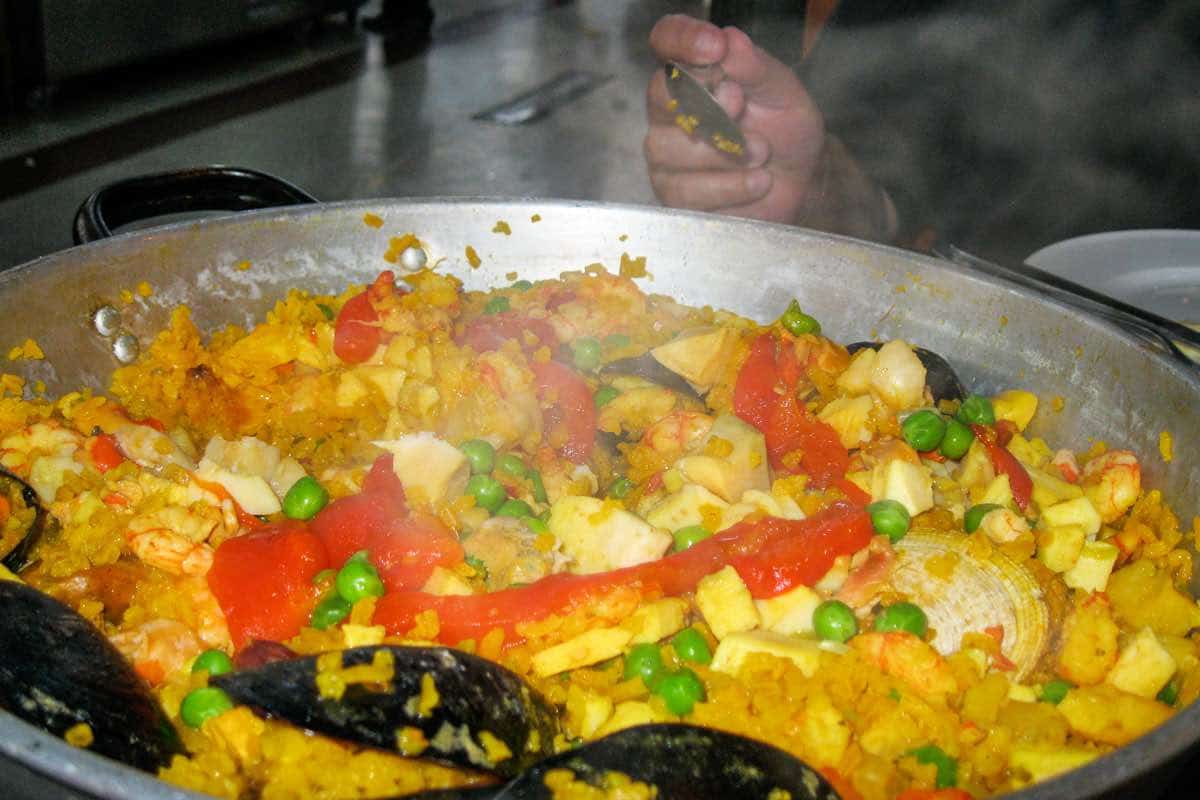
Eat Paella in Barceloneta
The first thing you should know about paella in Barcelona is the typical version is a purely seafood Paella de Mariscos. You can get more of a Paella Valenciana, if you like, which will include such ingredients as chicken, or rabbit, but I, and most Barcelonans will prefer the version which avails itself of the riches of the Mediterranean (and Atlantic) and features mussels, clams, squid, langostinos, et al. As far as picking a place to eat in Barceloneta, it used to be easier. Before the 1992 Olympics, Barceloneta was a bit of a dicey working class neighborhood. It underwent substantial “urban renewal” before 92, and the result is that you don't have the line of small restaurants along the beach that displayed their fresh seafood on enormous paella pans filled with ice. Now it takes a little more research. The lines of restaurants are there, but you have to look carefully. Which are filled with natives and which are filled with tourists? Obviously, choose the former. Another tip: ask how long the paella takes. If it's less than 40 minutes, go somewhere else.
Our pals at Devour Barcelona (see below) recommend three Barceloneta spots for paella. Start at these for your own search. Here's what they have to say: In Barceloneta we would recommend Can Sole (classic, white tablecloths) and the place on our tour, Can Ramonet (also classic – more casual though). My fav, however, is a bit farther out, Xiringuito Escriba. Modern and fun.
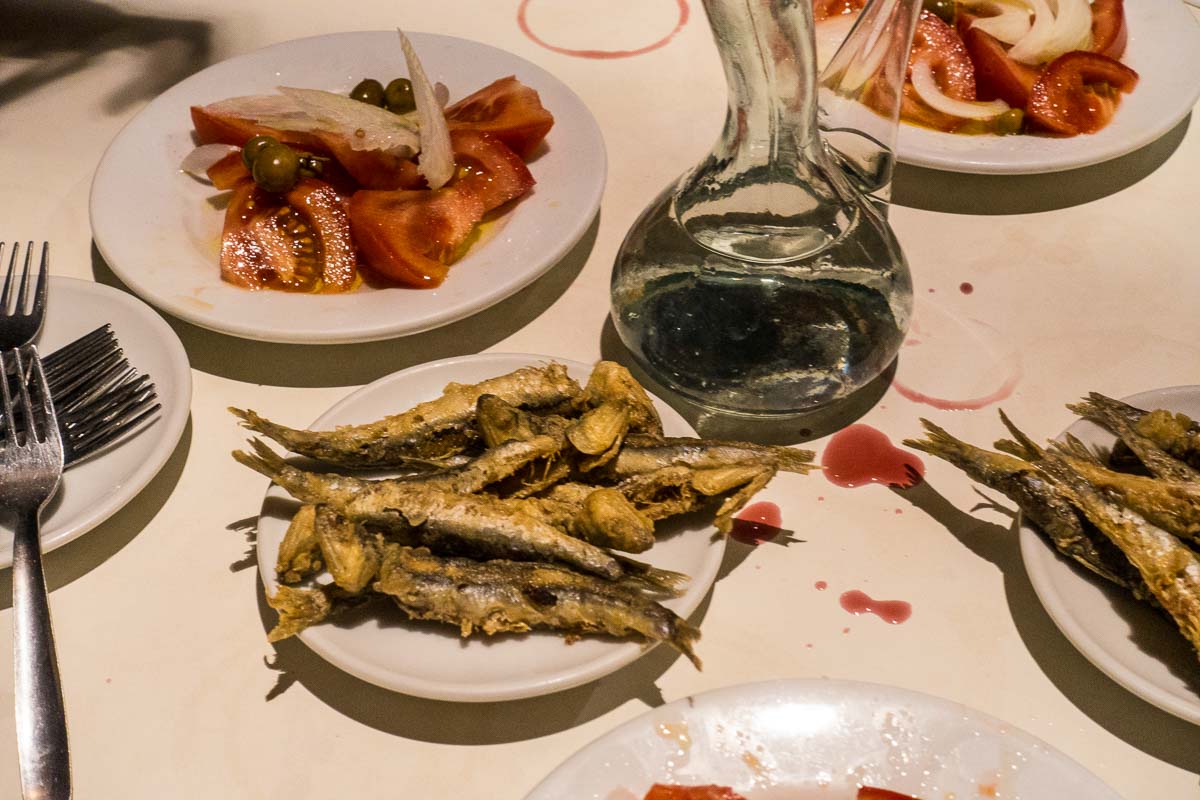
Take the Devour Barcelona Food Tour
To dig deeper into the best cuisine of Barcelona–because it is, ultimately, all about the food!–sign up for a Devour Barcelona tour. With a small group and a knowledgeable guide, you’ll walk around a neighborhood, learn lots of historic details, and be escorted into select bars and restaurants to taste specialties of the region. In the Barri Gòtic we sampled sausages, Jamón Ibérico, tortilla española, fried sardines (boquerones), luscious tomato salad, croquettes, patatas bravas, pork cheeks, and the famous dessert, crema catalana, all accompanied by cava, vermouth, and wines, of course.
Naming the places we visited–Bar del Pi, La Plata, and Bodega La Palma–doesn’t mean you can go on your own and replicate the special treatment we received. (Devour will only take you to small, locally owned, joints that feature their own recipes. No chains!) Plus, Devour Barcelona freely shares other recommendations for foodies, including markets, shops, and restaurant hotspots. Devour Tours offers food tours in several other cities in Spain plus Rome and Lisbon.
Here are some more ideas of where to eat in Barcelona (and Girona and Madrid.)
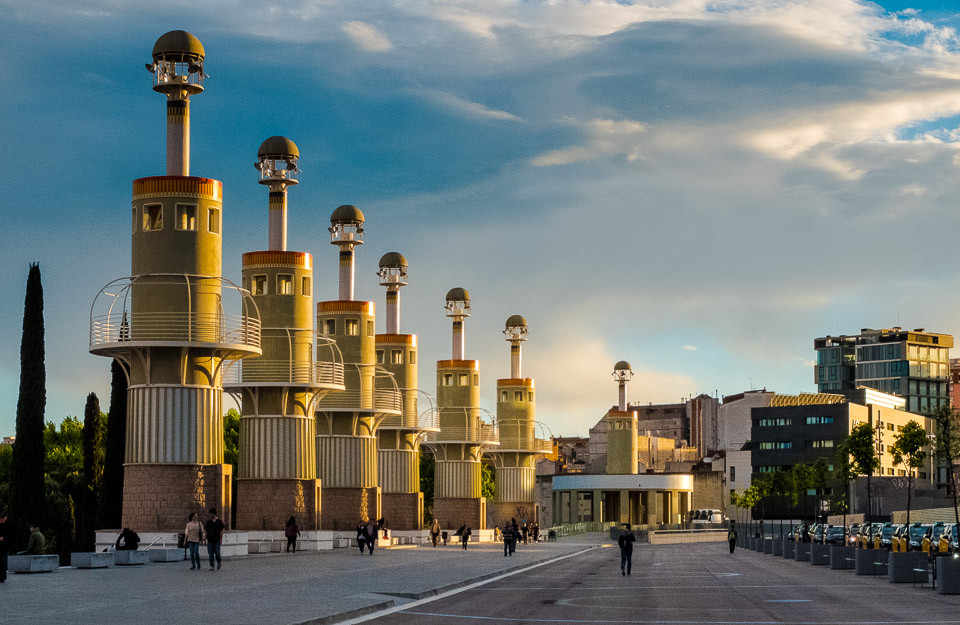
In no particular order, here are a few other ideas of things to see or do in Barcelona:
- Visit the Nou Camp, the home of FC Barcelona, the soccer club of Barcelona and perennially among the best teams in the world. Barça is more than just a soccer club, as its motto says. For a long time, it was the only permitted embodiment of Catalan national pride. There is a museum of the club at the stadium which is fun if you're an international soccer fan. Better yet, go to a game.
- The Picasso Museum has over 4000 works by the artist. If you're a Picasso fan, do it.
- For a view of the city (on a clear day) go up to the Tibidabo mountain. There's an amusement park there, too. You can also get a not bad view of the city from the front porch of the Museum of Catalan Art.
- Walk around the Gracia neighborhood. Unlike any other in the city, Gracia is almost a small town within the bigger metropolis. Lots of cool bars, small restaurants, and interesting shops.
- See a sound-and-light show at the Font Màgica (The Magic Fountain) at the base of Montjuic in front of the Museum of Catalan Art. On weekend evenings starting around dark, there's a sound and light show in tune with the big fountain at the base of the hill. Especially fun for kids–and adults who like the show at the Bellagio in Vegas.
- Walk around the Sants neighborhood. The area is full of local bars, especially a couple of Basque pintxo places (the real secret of Barcelona cuisine, if you ask me.) A recent improvement to the neighborhood includes the changeover of an old industrial area across the road from the railway station into a walking park that pays artistic homage to its industrial origins in true Barcelona fashion.
Finally, if you're serious about your visit to Barcelona (and you should be) pick up the book Barcelona by noted art critic Robert Hughes. It's all the background of the history, culture, and art that I've left out here and is the best resource for putting Barcelona and Catalunya in context.
If your reading taste is more toward the novel, I highly recommend The Shadow of the Wind by Carlos Ruiz Zafón. A marvelous evocation of the mood of Barcelona, as well as a great story of love and loss spanning generations.
The Gaudí and Domènech sites cited above are UNESCO World Heritage sites. Click the link to see a list of all the UNESCO World Heritage sites in Spain, with links to our stories about the ones we've visited.
Going to Barcelona?
Find a Barcelona hotel at Booking.com
Up Your Travel Skills
Looking to book your next trip? Use these resources that are tried and tested by us. First, to get our best travel tips, sign up for our email newsletter. Then, be sure to start your reading with our Resources Page where we highlight all the great travel companies and products that we trust. Travel Accessories: Check out our list of all the accessories we carry to make getting there and being there a lot easier. Credit Cards: See our detailed post on how to choose the right travel rewards credit card for you. Flights: Start finding the very best flight deals by subscribing to Thrifty Traveler. Book your Hotel: Find the best prices on hotels with Booking.com. See all of the gear and books we like in one place on our Amazon shop.Got a comment on this post? Join the conversation on Facebook, Instagram, or Threads and share your thoughts!

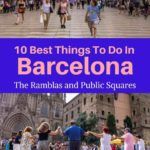
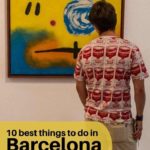
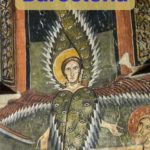
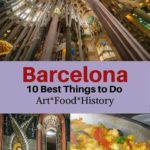
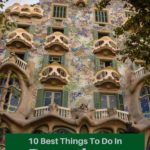
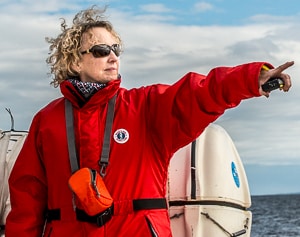
Comments are closed.